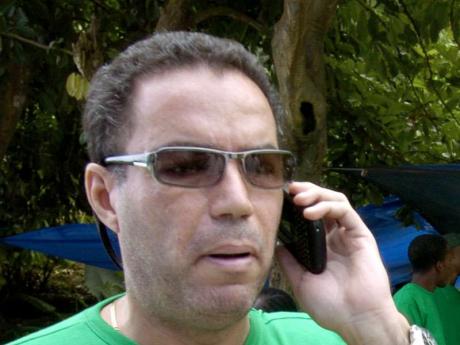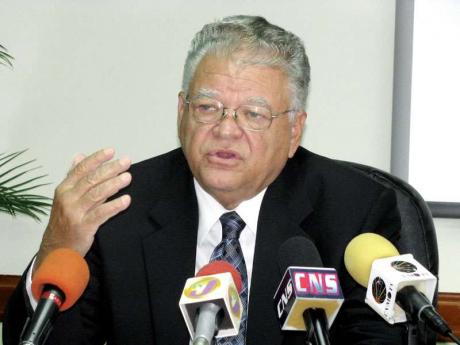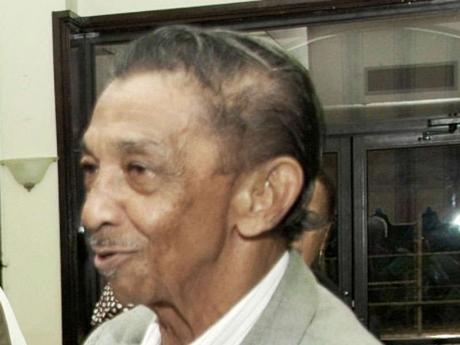The new gang
Robert Buddan, Politics of our time
A Carl Stone poll of May, 1990 showed that two union men were thought by Jamaicans to be the best persons in the Jamaica Labour Party (JLP) to replace Edward Seaga. They were Hugh Shearer (25 per cent ) and Pearnel Charles (19.7 per cent).
The other possibilities lagged badly behind. Long-expected heir, Bruce Golding, had the support of only 12.6 per cent. Then there was another gap with Karl Samuda (4.2 per cent), Mike Henry (3.2 per cent), Errol Anderson (2.8 per cent), Ed Bartlett (two per cent) and Douglas Vaz (1.9 per cent) being the last picks.
Shearer and Charles together had the backing of nearly 45 per cent of Jamaicans. But the JLP had turned its back irretrievably against working-class leadership. The other six, mainly from the brown business class, only inspired 26 per cent of the people. Yet, it was from within that group that the next leadership was to emerge. Of course, Seaga was to hold on stubbornly for the next 14 years, making matters even worse.
The JLP had chosen to ignore the people's opinion. It was to be a very costly mistake. People wanted leaders, the surveys said, who would look out for the poorer classes, stamp out corruption by the rich, improve the economy to provide jobs for the youth, and improve access to housing, health and education. The party concentrated on attacking the People's National Party (PNP) rather than adopting policies for the poorer classes and democratising its own structures. And, as Stone pointed out, Seaga concentrated on undermining the more popular Charles.
The late Errol Anderson, also a union organiser, tried to make the party more democratic during his brief stint as chairman. On the other hand, according to Stone, "Golding was seen as a Seaga clone and people resented the handpicked form of succession." By the 1990 conference, the labour wing of the party had been effectively subdued and has remained so.
10 Years After
Ten years after in 2000, a Don Anderson poll showed that national support for the JLP had sunk to 12 per cent, the lowest ever. The decade had been wasted. The trauma of the Gang of Five, Western Eleven, and National Democratic Movement had left the JLP not much better off. Some combination of these groups re-entered the JLP in and after 2002. In fact, that combination carried over much baggage from the earlier fights. Three things tend to trigger fights. One is elections in the party around conference time. Another is historical memories of who had been disloyal to whom. A third is blame by different sides. In the JLP, these fights don't seem to know limits or operate by any code of honour. War of words, expulsions, gag orders, spying, tainted money, thuggery, scandalising, just about anything goes. This is built upon a historically oligarchic structure and a cynical tradition fuelled by bad memories and mistrust. This is a lethal mix.
For example, Mike Henry had disagreed with the hand-picked mode of succession and has challenged for the party leadership himself. He has not been in anybody's camp and remains the most independent of the lot. His newly found power to dispense road works gives him great leverage independently of the party's private sponsors.
GATHERING FORCES
The forces seem to be gathering to remove Karl Samuda as general secretary at the coming party conference. Some are apparently trying to make out that Samuda is to be blamed for the failings that were exposed in the Golding-Coke-Brady-Manatt scandal.
This is the Samuda who called himself a matador in 2000. In the thick of his battles with Seaga he declared, "I want everyone to know that I will not yield to unwarranted threats that are born of distortions and untruths." If indeed, Samuda is being made the fall guy, it would be ironic. He had helped to facilitate dialogue with Golding to come back to the JLP. Secret talks appeared to have begun in about 1999. Samuda needed a helping hand in the JLP. Having left the JLP in 1990, he returned in 1995. He was immediately appointed leader of Government Business in the House, a position that needed to have the confidence of Seaga. But their rapprochement did not survive because of his flirtations with Golding.
Samuda was defeated in the contest to be general secretary and he withdrew from the Standing Committee in 1999/2000. Samuda was accused of having meetings with the NDM. He later fell out with party chairman, Ryan Peralto, a Seaga loyalist over this. Seaga opposed this dialogue saying that no one among the dissidents was a suitable successor. That would have included Golding. Mike Henry had been suspended for a year in 1999 and in that same year, Pearnel Charles lost the race to be chairman of Area 3 to Audley Shaw. Seaga said Charles was too old. Charles was to lose the race for party leadership to Golding in 2004.
Twenty years after the Gang of Five challenge broke, Samuda, the self-styled matador finds himself facing the bull again. In another twist, the challenge is being led by Daryl Vaz, son of Samuda's former comrade-in-arms in the G-Five, Douglas. Daryl Vaz seems to have used his very powerful position as deputy treasurer of the party to muscle his way up very quickly. The scandals and failures of party and government have undermined the credibility of just about everyone leaving Vaz positioned to move up.
In January 2008, close observer of the JLP, Troy Caine, named the potential successors to Golding as Christopher Tufton, Andrew Holness, James Robertson, and some others that are not really in the picture. He thought Golding would last for at least 10 years. Tufton has important backers. Holness is a respected minister. But to show how quickly fortunes rise and fall in the turbulent JLP, Vaz might now have enough control of the machinery and the nod of the people who really matter. Just last week, Mark Wignall wrote, "At times he has been the de facto deputy PM and probably the person in the Cabinet closest to the prime minister." My information is similar.
Vaz might have emerged as a kind of chief of staff controlling movement in and out of Golding's office. We know from Brady's lawsuit that he has been in the thick of the Manatt affair. He would have an interest in how the matter is handled, what information is released and how. He seems to have that power. He is minister of information. Maybe that power extends to naming the rules for the farcical commission of enquiry into the Manatt affair just announced. It has that 'in-your-face' quality that fits his style. Can the matador hold his ground?
Robert Buddan lectures in the Department of Government, UWI, Mona. Email: Robert.Buddan@uwimona.edu.jm.



